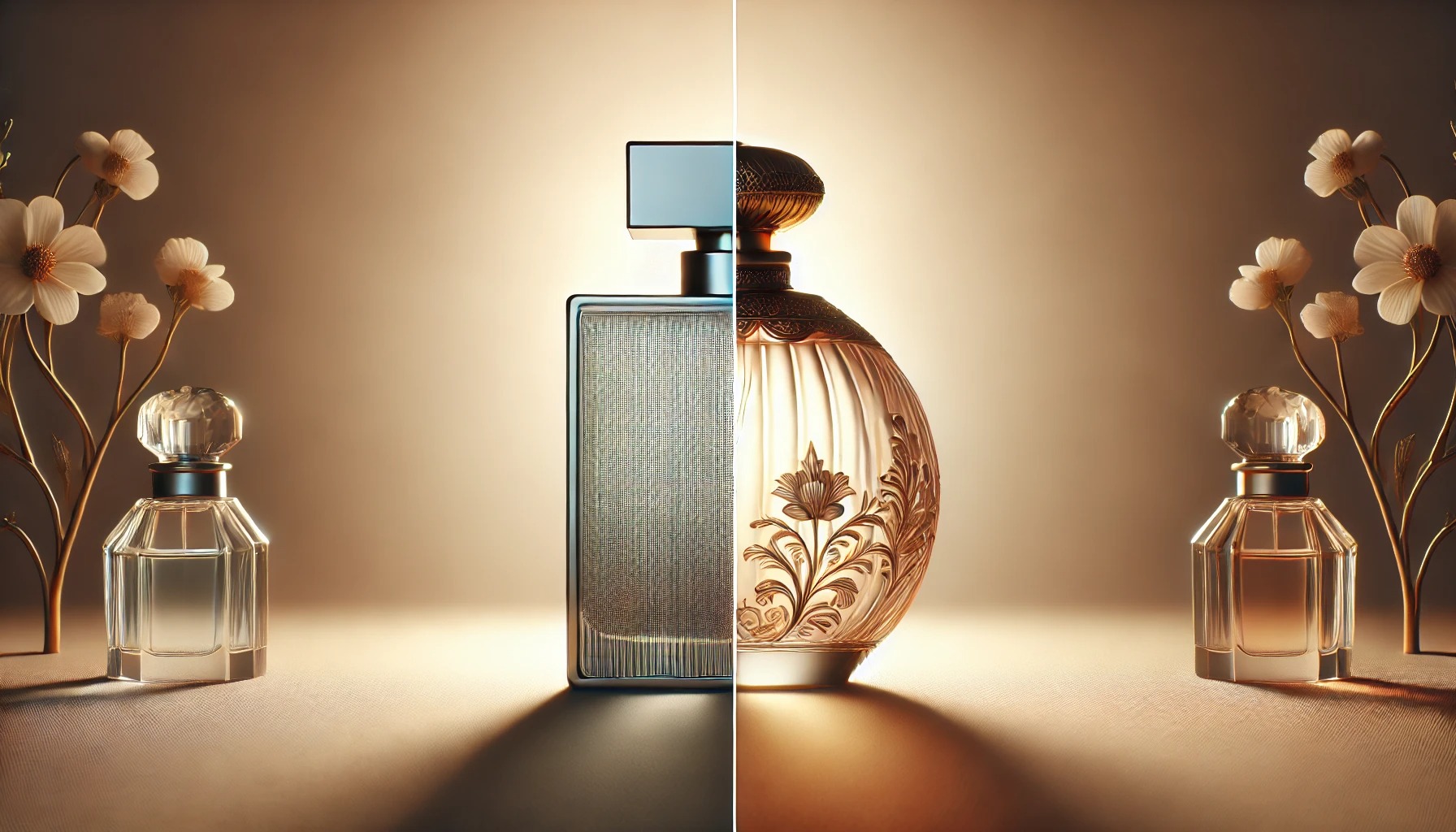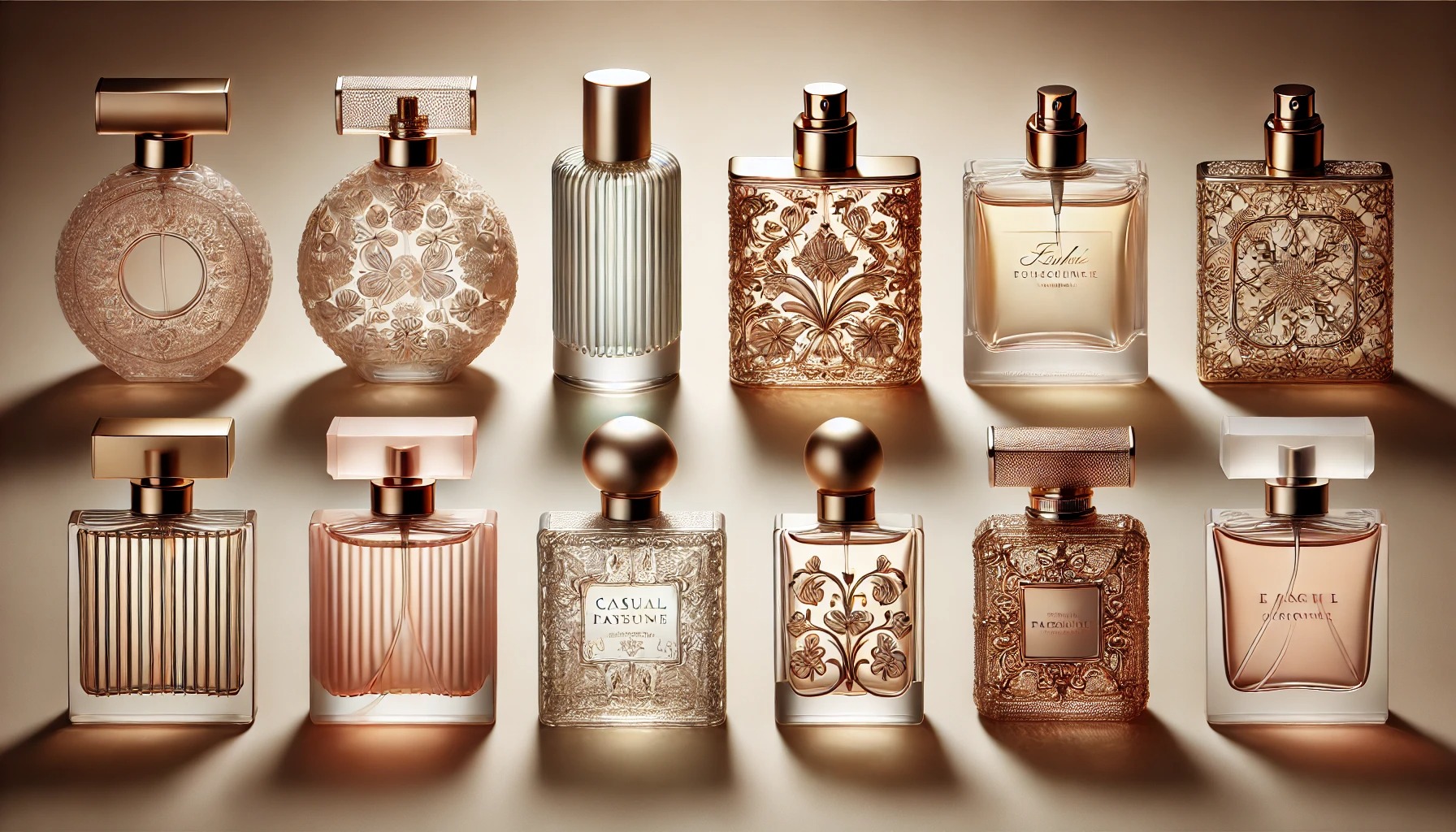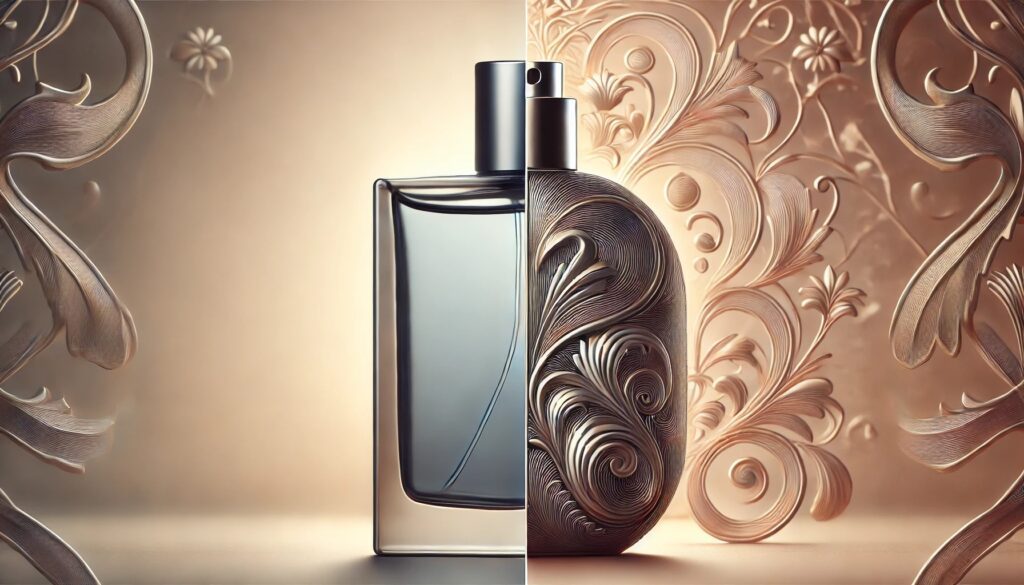Fragrances are a major extension of personality and fashion, but each is usually identified by its characteristic name and degree of elegance. However, all these terms are confusing as most people refer generically to cologne or perfume when trying to describe perfumed scents. The terms “cologne” and “perfume”, in fact, represent different types of fragrances that show variations in concentration, duration, and purpose of use.
In this article, we will look at the main differences that set cologne and perfume apart, go over some of the different categories of fragrances, and help you understand which type may be best for specific occasions and tastes. From the light, everyday scents to the rich and fragrant ones for special events, knowing the differences will help you make an educated choice.
What is Fragrance Concentration?
First of all, it is necessary to discuss the crucial difference between cologne and perfume, which must cover fragrance concentration. Fragrance concentration can be regarded as the amount of perfume oil mixed with alcohol and water in a fragrance. The greater the amount of perfume oil, the stronger and more durable the fragrance will be.
Fragrance types are generally differentiated by their concentration levels, which determine how long they last, the level of intensity, and their price. Here’s a quick overview of the major fragrance categories according to their concentration level:
| Fragrance Type | Perfume Oil Concentration | How Long It Lasts |
|---|---|---|
| Pure Parfum | 20-30% | 8-12 hrs |
| Eau de Parfum (EDP) | 15-20% | 6-8 hrs |
| Eau de Toilette (EDT) | 5-15% | 3-5 hrs |
| Eau de Cologne (EDC) | 2-4% | 2-3 hrs |
| Eau Fraiche | 1-3% | Up to 2 hrs |
These categories give an idea of how strong a fragrance is, how long it may last, and at what time it should be worn. Perfumes with higher concentrations usually come out to be very strong, last longer on the skin, and well, are more pricey.

Cologne vs. Perfume: Core Differences
While the terms “cologne” and “perfume” are generally used to define fragrances that are typically designed for men and women, respectively, these terms actually define variations in fragrance oil concentration, rather than specific scents or gender. Each is defined as follows:
1. Perfume (Parfum)
Perfume, or parfum, is sold in the most concentrated form, with a perfume oil concentration of approximately 20-30%. This makes perfume the longest-lasting fragrance type due to such a strong concentration, hence rich and intense, lasting up to 8-12 hours or longer on the skin.
Longevity and Sillage: Perfume exhibits excellent longevity and sillage, or the trace of scent left. A little dab or spritz gets you through the day.
Intensity: Perfume is really intense due to its high concentration; many would say that it was usually thought of as being reserved for evening wear or special occasions.
Price: Typically, perfumes are the most expensive type of fragrance because it has a high concentration of oils and requires less alcohol.
Perfume is ideal for anyone desiring a strong, long-lasting fragrance and who has the willingness to invest in its quality.
2. Eau de Cologne (Cologne)
Eau de Cologne, often just termed cologne, would have a much lower concentration of perfume oils, at about 2-4%. Originally, cologne was created in the 18th century in Cologne, Germany, and it was lighter, a refreshing fragrance one was supposed to apply frequently. Nowadays, cologne is marketed as a men’s fragrance, though technically it’s just a name for the concentration level, gender-neutral.
Longevity and Sillage: Perfume cologne is lighter and will last about 2-3 hours on the skin. Sillage is softer, and for one to enjoy the perfume all day long, he has to apply much more frequently.
Intensity: Cologne is subtle, as it does not have a high concentration of fragrance oil and is thereby perfect for daytime or casual wear. It would be great to wear in hot states or during summer when lighter scents are preferred.
Pricing: Since cologne contains a lower concentration of perfume oil compared to other high concentration forms like Eau de Parfum and perfume, it is hence cheaper.
Cologne is best suited to the man who prefers a light, fresh fragrance that one can apply liberally and refresh throughout the day.
Other Types of Perfume Besides Cologne and Perfume
Apart from cologne and perfume, there are other common fragrance types in separately different concentrations and in which situations to wear. Let’s observe quickly below:
1. Eau de Parfum (EDP)
Eau de Parfum contains 15-20% perfume concentrate. It is a little less concentrated than perfume, though it also remains present for quite a long period, lasting from 6 to 8 hours.
Ideal For: Worn during both day and evening; very popular for people who like to smell robustly fragrant without the potency of a pure perfume.
Usage: It is enough for all day with just a few sprays-on, making it versatile for many people.
2. Eau de Toilette (EDT)
Eau de Toilette would contain around 5-15% perfume oils, considering it is lighter and fresher; EDTs will last for about 3-5 hours and can be used for daytime wear.
Ideal For: Daytime use or casual settings, this is highly popular due to the perfect blend of intensity and subtlety.
Usage: Ideal for those who prefer a lighter scent and can easily reapply mid-day if needed.
3. Eau Fraiche
Eau Fraiche is the least concentrated perfume—among them it contains only 1-3% perfumed oils. It has a very light and refreshing scent which generally lasts less than 2 hours.
Ideal For: A refreshing boost in the hottest time of the year or after a workout.
Usage: Ideal for those who seek a very minimal scent that will not stay on for too long.
Common Misconceptions About Cologne and Perfume
A common myth is of the belief that cologne is for men and perfume is for women. This is not the case. Fragrance types are categorized mainly by the concentration of their perfume oils, rather than gender. Both cologne and perfume are worn by men and women; it has to do with the preferred strength of the fragrance and its staying power.
Another common misunderstanding is that cologne sounds light or less serious. While lighter, cologne can be rich and filled with complex notes in its formulation. Some colognes are even done to have depth and character, and so may be suited for those who like their fragrance subtle but elegant.

Choosing Between Cologne and Perfume: Factors to Consider
Therefore, the personal reasons, lifestyle, and occasion of use will influence the choice between cologne and perfume. A few things to consider are:
Longevity: For a fragrance that would last all through the day or night, one needs to go in for perfume or Eau de Parfum because they contain higher concentrations and will last longer.
Intensity: Some may enjoy wearing stronger fragrances such as perfume or Eau de Parfum for special occasions or evening events. However, during the day and for daily, casual purposes, it would be advisable to opt for cologne or Eau de Toilette due to their lighter, fresher profile.
Skin Type: The more oil a person’s skin is, the longer fragrances will tend to last. For this reason, dry-skinned individuals may find themselves needing to reapply. If you have dry skin, a stronger percentage might be in order if you want longevity with the scent.
Weather and Climate: Heavy fragrance like perfume is heavy on hot weather conditions. Lighter cologne or Eau Fraiche works better during warm climates since they cool down the atmosphere.
Budget: Perfumes and Eau de Parfums are more expensive due to their high content of oils, while the rest of the categories, such as cologne and Eau de Toilette, are thought to be cheaper and more budget-friendly options.
When to Wear Each Type: A Quick Guide
Here’s a quick guide to help you decide when to wear each type of fragrance.
- Perfume (Parfum): The evening-wear fragrance, formal events, or cold weather is just perfect for you to need all-day, intense fragrance.
- Eau de Parfum (EDP): This is the versatile concentration, hence suitable for day and night; good for most occasions and provides a strong, long-lasting scent without being overpowering.
- Eau de Toilette: Suitable for everyday wear, going to work, or just going out casually. It refreshes with its fragrance and can be applied anew during the day.
- Cologne (EDC): Lighter, fresher smell; makes for great casual wear in warm weather, or for those occasions when subtlety in a fragrance is called for.
- Eau Fraiche: Ideal for when a quick, light refreshment is desired; suited to hot climates, post-exercise, or when a minimal scent is preferred.
Finding Your Signature Scent
The difference between cologne and perfume is in the levels of concentration, thus determining the intensity, longevity of the fragrance, and where it would therefore best be applied. By being able to make this differentiation, you will make wiser choices when picking out a fragrance that suits your style, occasion, and even season.
Notice that fragrance is an extremely personal choice, and the best fragrance for you will be based on the one with which you feel confident and comfortable. Whether you prefer the richness of perfume, the versatility of Eau de Parfum, or the refreshing lightness of cologne, there’s a fragrance out there that ideally fits your personality and style of living.
So the next time you’re shopping for a fragrance, pay attention to those concentration labels: “perfume,” “cologne,” “Eau de Parfum.” And then pick which kind will suit your needs. With just a little knowledge, you will be well on your way to finding your signature scent that leaves a lasting impression.

